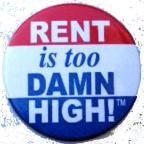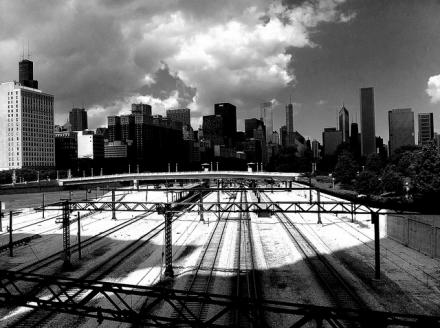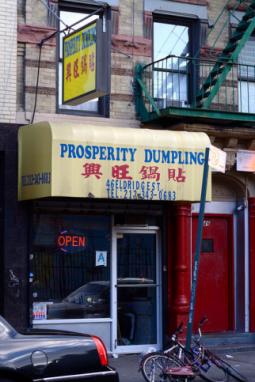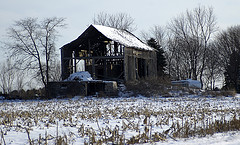You’re welcome to come to the first class session without registering or paying. Optional pre-registration is here. You might want to read or listen to the first few chapters of the text prior to the first session. Class meets each Tuesday January 6 thru February 10. Makeup sessions and tutorials can be arranged if you have a schedule conflict.
The total cost for the entire course is just $25, and can be waived for anyone who prefers to provide labor in advance.
How does a Georgist and a futurist evaluate the future of the single tax movement? Learn how futurist techniques can advance the cause. Among the tools employed by futurists, scenarios and projections are considered. This Power Point® and audio presentation is followed by an exercise in scenario building with discussion.
 Even more than in Chicago, the cost of living is too high in New York. Manhattan activist Scott Baker has taken a look at how poor assessments and unwise tax practices have exacerbated this problem, and shows how smarter policies could cut poverty and homelessness. A similar study could be done in Chicago. Hosted by Bob Jene.
Even more than in Chicago, the cost of living is too high in New York. Manhattan activist Scott Baker has taken a look at how poor assessments and unwise tax practices have exacerbated this problem, and shows how smarter policies could cut poverty and homelessness. A similar study could be done in Chicago. Hosted by Bob Jene.

We sometimes describe Henry George’s fiscal proposal as a “smart tax,” unlike the inefficient anti-prosperity taxes that fund most government programs today. Similarly, there can be “smart” transit facilities, which are distinguished from dumb ones because they are cost less and provide more service. Perhaps the most prominent recent smart transit proposal is the CTA Gray Line, whose creator, Mike Payne, will be our speaker tonight.
From the CTA Gray Line web page:
Launching the Gray Line would provide a brand new CTA Rapid Transit (‘L’) service (on EXISTING facilities) to Grant Park, the Museum Campus, the newly renovated Soldier Field, and McCormick Place (with a connected station under the McCormick Place South Bldg.)
Also service to Bronzeville, Hyde Park, the Museum of Science & Industry (with an ADA compliant station 1 1/2 blocks away), the University of Chicago, Woodlawn, South Shore, South Chicago, Chatham, Chicago State University, Pullman, Roseland, Blue Island, and Hegewisch; again almost all Gray Line facilities are in place, and operating RIGHT NOW TODAY.
. . .
There is N O need for costly and time consuming design and engineering, right-of-way acquistion, condemnation, demolition, clearing, materials acquisition, delivery, and major construction; the CTA Gray Line ‘L’ System could be up and providing CTA ‘L’ service to the Far South Side WITHIN O N E YEAR, rather than waiting until 2016 for completion of the Red Line Extension.
Come to this free presentation to meet and question a prominent transit activist, and think about what could be done with all the public money saved by smart projects like the CTA Gray Line.

An evening with Bob Jene to compare the Georgist fiscal reform to the TARP bailout, “Fair Tax,” Flat Tax, Bush tax cuts and government money creation. A gist of each proposed or attempted solution to the “great recession” will be given including QE I, QE II and QE III. Attendees will rank the proposed remedies on a scale of 1 to 10 based on 8 criteria.
Approaching Henry George’s ideas from a moral and practical perspective as the right way to do away with poverty. Conceived and presented by Henry George School instructor George Menninger.
Approaching Henry George’s ideas from a moral and practical perspective as the right way to do away with poverty. Conceived and presented by Henry George School instructor George Menninger.
Picking up where we left off last meeting, the Political Economy Book Club will complete its discussion of Book V of Adam Smith’s classic Wealth of Nations. This section focuses on taxes. RSVP appreciated to rjmatter@gmail.com

With state and local governments in financial disarray, they might want to evaluate the big tax breaks given to owners of Illinois farmland. Chuck Metalitz will present a [forthcoming] HGS Research Note discussing the potential benefits of a realistic tax rate on farmland, including an estimate the amount of land which would move out of state as a result of higher taxes.

As farmland yields to “higher-value” uses, how (and how well and how inexpensively) will we eat? Bob Jene reviews data from a leading agricultural preservation organization, the American Farmland Trust (AFT). Among other things they buy development rights from landowners to insure continued farming use, and attempt to facilitate community supported agriculture which makes family farms more viable. A Georgist fiscal reform encourages more conservative and productive use of all land and reduces sprawl, thus preventing encroachment on farmland. An alliance with AFT would benefit us both.
